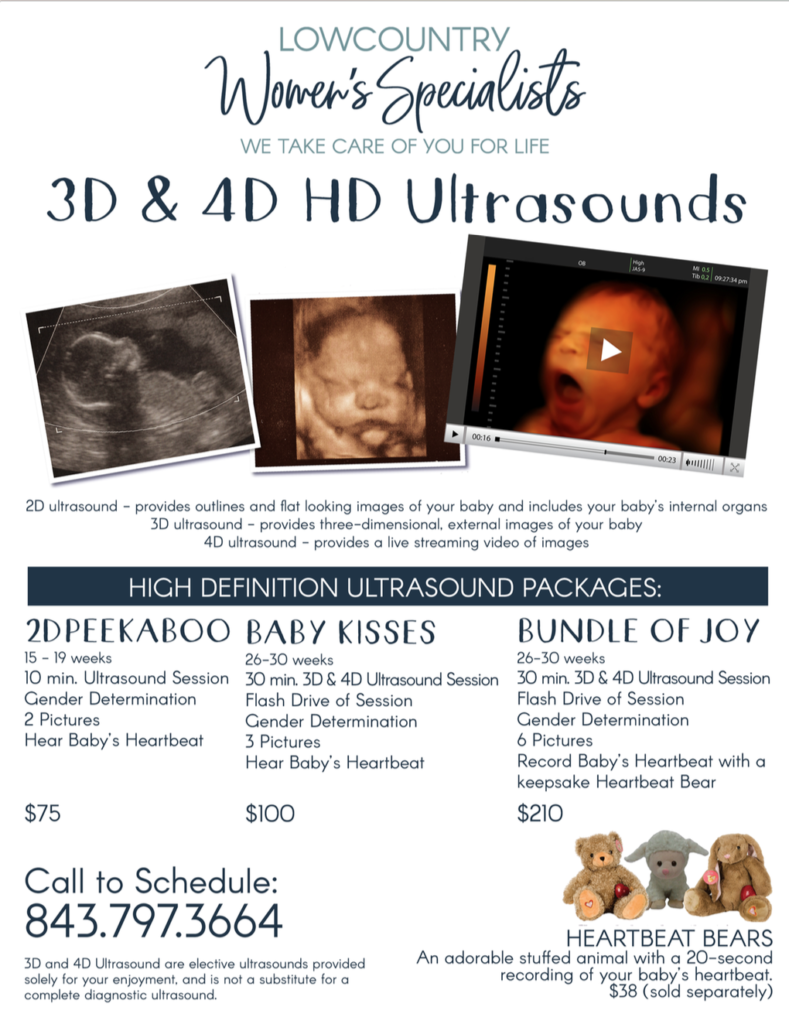This year, an estimated 110,070 women in the United States will be diagnosed with a gynecological cancer – the uncontrolled growth and spread of abnormal cells originating in the female reproductive organs. There are five types of gynecological cancer, including cervical and ovarian.
“Every woman is at risk for developing a gynecological cancer,” says Dr. Christopher Accetta of Lowcountry Women’s Specialists. “So, it’s important to be aware of the warning signs, be knowledgeable of your family history and follow recommended screening guidelines.”
Here are four broad concepts about reproductive cancers that every woman should understand:
1. Cervical Cancer vs. Ovarian Cancer – What’s the Difference?
Cervical cancer and ovarian cancer are two common types of gynecological cancer, with ovarian cancer having the highest rate of death. The major difference is the location at which the cancer originates. Each type of gynecological cancer also presents different symptoms.
It is not uncommon for cervical cancer to grow silently and without symptoms during the early stages. Advanced cervical cancer may cause bleeding or discharge from the vagina.
Ovarian cancer may also cause vaginal bleeding, but other symptoms may include pain or pressure in the pelvic area, abdominal or back pain, bloating, changes in bathroom habits (more or less frequent than usual), feeling full too quickly or difficulty eating. There is no clear cause for ovarian cancer, but factors such as lifestyle, genetic mutations and family history may increase a woman’s risk.
2. How to Reduce Your Risk
Cervical cancer is heavily associated with human papillomavirus (HPV), a common sexually transmitted infection that affects both men and women. Each year it causes more than 33,000 cases of cancer, of which 93 percent can be prevented from ever developing with the HPV vaccine.
Unfortunately, there is no vaccine to help prevent ovarian cancer, but maintaining a healthy lifestyle may reduce your risk.
3. Recommended Screening Guidelines
The single most important thing women can do to help detect any form of gynecological cancer early is to never skip their annual well-woman exam. Each visit includes a full medical history, physical exam (general, breast and pelvic), and discussion of your overall health maintenance strategies.
Cervical cancer is the only gynecological cancer that has a screening test – the Pap test (or pap smear), which looks for pre-cancerous cells or changes to the cervix that may develop into cervical cancer.
This screening is recommended for all women starting at age 21. For women up to age 29, it may be spaced every two years, or every three years for women 30 years and older with a history of three consecutive negative pap smears. If at any point your results are abnormal, your physician may recommend a repeat screening sooner than the recommended schedule.
4. When to Consult a Physician
If you are past due for your annual wellness exam or have concerns about symptoms you are experiencing, call Lowcountry Women’s Specialists at (843) 797-3664 to schedule an appointment today. For more information, visit LowcountryWomen.com.
The Summerville Journal Scene; October 2018


